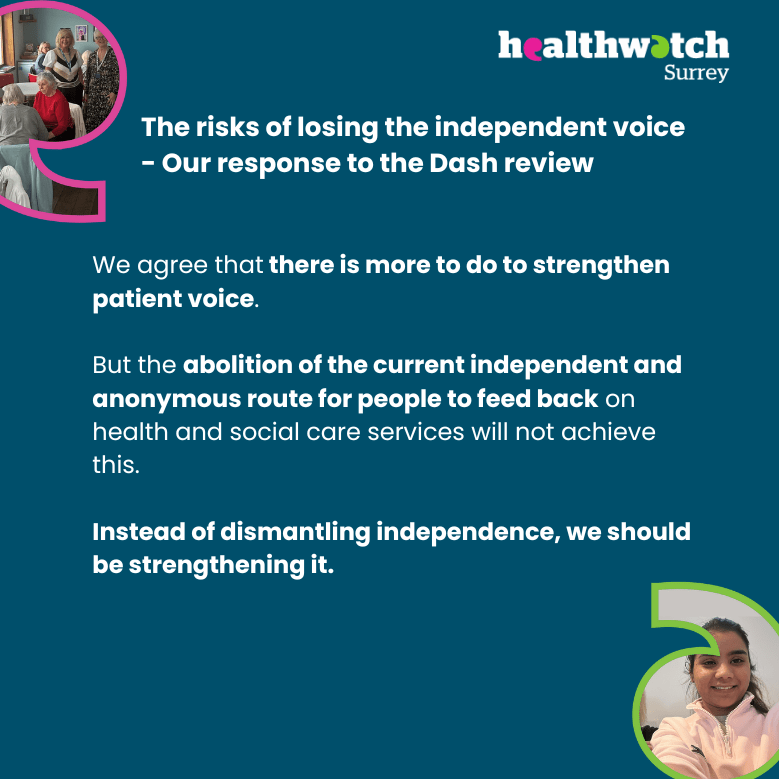
The risks of losing the independent voice – Our response to the Dash review
Earlier this week the Dash Patient Safety review was published. Its recommendations have been incorporated into the NHS 10 Year Health plan, including transferring the functions of local Healthwatch into NHS Integrated Care Boards and local authorities.
This is despite the review recognising that ‘Healthwatch, while not solely a patient safety organisation, plays a crucial role in promoting patient safety by amplifying patient voices. Since 2013, Healthwatch has made a significant impact, aiding over a million people annually to voice their concerns and access advice.’
This review was limited in its scope, and very few local Healthwatch were interviewed as part of the process. It is surprising that given the review’s aim of “greater emphasis being placed on the patient voice” that patients and the public were not asked for their views.
We do not feel that the work of Healthwatch described in the Dash review accurately reflects the work we do in Surrey. We actively seek out voices that may not otherwise be heard, particularly those at risk of health inequalities. We use trusted relationships with communities and VCSE organisations to have face to face conversations, explore people’s experiences with curiosity, and connect them with support services. Proposals to record feedback via the NHS App from those who have managed to access services, can’t provide this.
People’s experiences of health and social care are more than singular interactions with providers and these proposals will create a significant gap in understanding the public’s perspective. Separating the health and social care functions of local Healthwatch is a backwards step in terms of service integration.
One of Healthwatch’s functions is giving people independent information and advice, helping them find appropriate support, understand their rights, navigate the bureaucracy and complexity of NHS and social care services, and obtain information in an accessible manner. This service is crucial to those who need support, are vulnerable, who don’t know where else to turn. There is not enough emphasis on this in this review.
As Healthwatch, we actively seek out voices that may not otherwise be heard, particularly those at risk of health inequalities. Often those who rely most heavily on health and care services, and who have the most complex needs, are the least likely to shout loudest to give feedback via an app or file a formal complaint. These plans do not provide assurance that there will be legitimate accountability to ensure these voices do not get silenced.
We do recognise that there is currently variation in how people’s voices are shared throughout the local Healthwatch network. The funding cuts (a reduction of almost 50% nationally since inception) and variation across the country has not helped this and we agree that there is more to do to strengthen patient voice. We do not agree that will be achieved via the abolition of the current independent and anonymous route for people to feed back on health and social care services.
Instead of dismantling independence, we should be strengthening it.

